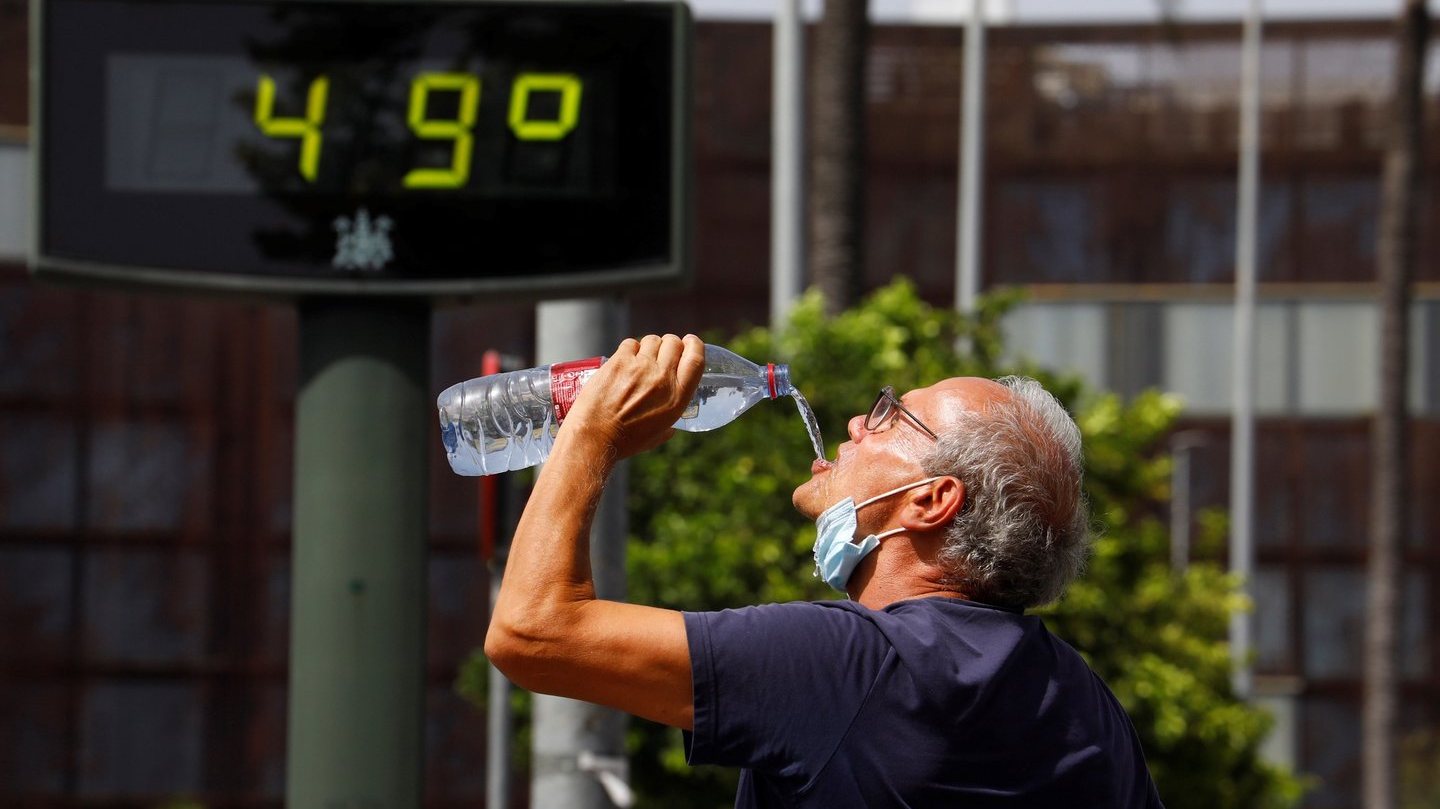Heat waves increased daily hospital admissions by 18.9% between 2000 and 2018, mainly due to burns (34%) and polytrauma (27%), reveals a study by the National School of Public Health (ENSP).
The pioneering study points to “a general, statistically significant increase in daily hospital admissions during heat wave days,” with children and young people up to 18 years of age being the most affected (21.7%) and older people ( 17.2%). .
According to ENSP researchers at the NOVA University of Lisbon and the CoLAB + Atlantic Center, heat waves caused an increase in hospitalizations, between 7% and 34.3%, in 25 main causes of illness.
On average, on heat wave days, hospitalizations increased by 34% for burns, 27% for polytrauma, 25% for infectious diseases, 25% for endocrine, nutritional and metabolic diseases, and 23% for mental illnesses. , 22% for diseases of the respiratory system and 16% for diseases of the circulatory system, among others,” highlights the study published in the scientific journal Lancet Planetary Health.
“The study is very complete in the sense that it covers more than 12 million hospitalizations that took place in mainland Portugal for almost two decades (from 2000 to 2018),” says the first author of the research, Ana Margarida Alho, researcher at the ENSP.
Hospitalization data is crossed with daily air temperature data for the 278 municipalities of continental Portugal, explained the researcher.
The results conclude that “more than 70% of the territory has an increase in hospitalizations during heat waves”, with the most substantial increases occurring in the Northern regions, including the metropolitan areas of Porto and Lisbon, with the youngest group (under 18 years old). years) particularly affected in the interior and southern regions.
This sharp increase in hospital admissions can compromise the quality of healthcare to patients, which places an even greater burden on healthcare professionals, especially in this summer season, when team schedules are already reduced compared to the holiday period.
One of the “great challenges” that motivated the study was to quantify the morbidity (disease) associated with the phenomenon, since there is already a lot of data on mortality, he said, arguing that “morbidity is a premature phase of mortality in which we must act.” early”. The concept of morbidity corresponds to the relationship between the number of cases of a disease and the total number of individuals in a given population, at a given time or during a given period.
Ana Margarita Alho said that This study will continue with the objective of specifying, within each disease group, the reasons that lead the patient to hospitalization.using mental illness and trauma as examples.
“It is documented that People tend to sleep worse during heat waves and this often leads to the decompensation of a disease that may already exist and, sometimes, there are also effects of medications that can alter the homeostasis of the body and that obviously must be specified,” he explained.
Regarding polytrauma, he said that People tend to consume more alcohol on hot days and often tend to have more disinhibited behavior.more impulsive, or practicing more extreme sports, driving on roads they don’t know as well, and all of this can trigger this increase in hospitalizations.
The researcher noted that, until recently, the occurrence of heat waves was considered an unusual phenomenon, but “extreme weather events such as heat waves are becoming common features of summer around the world, making measures “Safety measures to adapt to the heat are a priority.”
“2023 was the hottest year ever recorded and extreme weather events, including heat waves, represent one of the biggest current concerns,” and are expected to exceed 60 days in multiple areas of southern Europe.
For Ana Margarida Alho, it is important to promote early access to health, considering crucial to raising public awareness on the risks and behaviors to adopt in the face of heat waves, thus contributing to preventing heat-related illnesses and subsequent mortality.
The researchers consider that these results should be used to promote the adaptation of healthcare in Portugal to an increasingly frequent, intense and long-lasting phenomenon.
Source: Observadora
